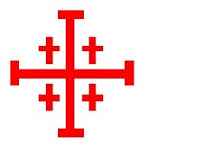In the 1990s I planted a church in a small suburban
town near Dallas. At the beginning we had a small start-up group from another
local parish. Within a year we had a congregation of around 75 people, and in
the next few years we had one of the fastest growing congregations in the
Dallas area. It was by intentional design that 90% of our people were previously
unchurched, many of them recruited through a telephone evangelism approach.
[That worked in the early 1990s, but wouldn’t work today.]
At the beginning we had very little internal conflict;
and the presence of God the Father, God the Son, and delight in the Holy Spirit
claimed the center of our attention. For a couple of years, we held Sunday
worship in a school cafeteria. When we moved to a location in a nearby shopping
mall the congregation continued to grow. Our new Mission began to draw not only
previously unchurched people, but also a number of people who began to transfer
in from other parishes in our denomination. Be aware that Church Growth is not
the same thing as transferring already churched people from one congregation to
another.
As the number of previously churched people increased;
internal conflict began to increase. Characteristic of that was an incident at
a baptism. In lieu of a baptismal fount we were baptizing adults in the
swimming pool of one of our members. Our music at that time was contemporary
gospel music accompanied by guitars [I must say that is not my first
preference, but it is what we had, and what was available. I prefer a balanced
music program ranging from contemporary to classical, with a good proportion of
traditional hymns.]
In The Book of Common Prayer there is blessing of the
baptismal water. A new member who had transferred in from a larger congregation
was serving on the Altar Guild took me aside and objected, “Now what are we
going to do with all the Holy Water?” I was impressed with her lack of empathy
with the newly reborn Christian who had just been baptized. Then she asked,
“Why can’t we make them sing our kind of music?” By that she meant the kind of
music she sang in her previous church. That was the first note of problems yet
to come; and it was to be followed up with other similar critiques of our
common life as a new congregation. Those conflicts arose almost completely from
the previously churched people, and their attitude was going to infect others
in the congregation.
As we began to make plans for a new church building
our percentage of previously churched people increased, and we had to deal with
more serious conflicts. Nothing brings out conflict in a congregation faster
than what kind of floor we should have in the worship area, among a hundred
other similar details. Some, but not all, of the previously churched people
wanted a building just like the building they had in their previous church,
after all that is the true architectural representation of what evokes worship.
[Make no mistake, my favorite church building is Canterbury Cathedral in Kent
where I have attended Evensong a number of times, but that won’t do for
America.]
What was the source of the infection that the
previously churched brought with them into our mission congregation? The
previously churched people brought with them a critical spirit. They were the only
authority; their traditions, their presuppositions about the nature of church,
and in most of them, their lack of personal faith. What was the source from
which this poison arose? The source of the poison was the ineffectively
evangelized congregations from which they came. The solution is the
evangelization of the Church itself.
What was it that I was missing? I failed to recognize,
and speak consistently, to the effect of the critical attitude of previously
churched people on our new congregation. Yet even though it aggravated me [and
it should have], I brought many of them to faith. Still I had failed to address
the presenting problem of their critical attitudes that sprang from their presuppositions
about the nature of the church and its ambience. That was going to result in
ongoing problems as the congregation continued to grow.
The Rev. Canon Dr. Robin P. Smith, Oblate OSB





